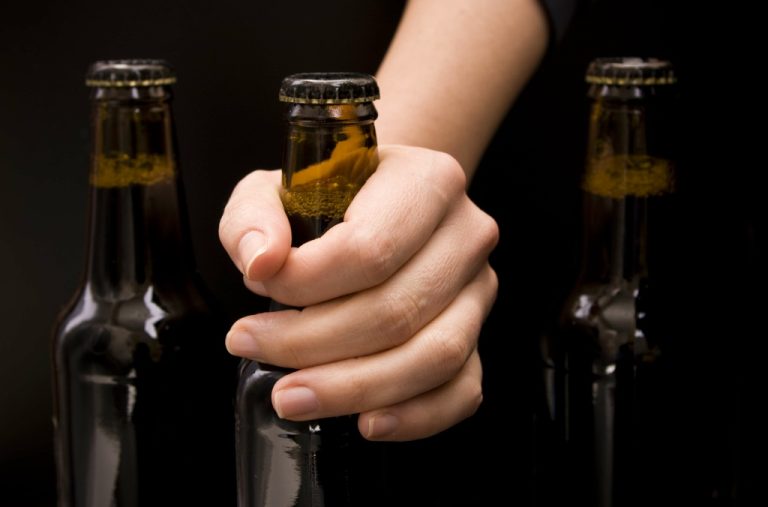The most likely explanation is that alcohol dilates blood vessels in the nose, which can cause irritation and lead to sneezing. Sneezing after drinking beer may be caused by a mild allergic reaction due to a build-up of histamines in the body. Alcoholic drinks can trigger a variety of allergic and allergy-like reactions, such as rhinitis, itching, swelling, headaches, cough, and asthma. Importantly, alcohol does not solely exacerbate seasonal or perennial rhinitis but can induce rhinitis symptoms in individuals predisposed to https://ecosoberhouse.com/ any type of this condition. Nonallergic rhinitis can also occur following the consumption of certain food triggers, particularly hot or spicy items. Furthermore, alcohol can cause swelling in the nasal tissue, leading to nasal congestion—an aggravating factor for allergic rhinitis symptoms.
Alcohol intolerance symptoms
These effects can be particularly disruptive for individuals dealing with sleep and respiratory-related allergies. It can exacerbate existing symptoms, trigger allergic reactions due to the substances it contains, or contribute to conditions like allergic rhinitis. Alcohol-related allergic reactions are not limited to alcohol itself but can also be induced by additives, preservatives, and other ingredients in alcoholic beverages.
How to Tell if You are Allergic to Alcohol Itself?
Experiencing sneezing after drinking beer is an unusual but not uncommon phenomenon. This reaction can be puzzling and uncomfortable, particularly if it occurs frequently. This comprehensive article explores the reasons why some people may sneeze after drinking beer, the underlying mechanisms, and potential ways to manage or prevent this reaction. This is because alcohol can weaken your immune system, making you more susceptible to allergens. Additionally, alcoholic beverages contain histamines and sulfites, which can trigger allergic reactions, including hives, rashes, and flare-ups alcohol sneezing of eczema.
General Health
Growing up, I always knew when my father had enjoyed a glass of red wine. Now, I find myself experiencing the same reaction, so let’s explore why it happens and what you can do about it. Sensitivity to wine appears to be due mainly to pharmacological intolerances to specific components, such as biogenic amines and sulphite additives.
More importantly, you’ll discover actionable ways to stop alcohol from inflaming nasal passages so you can avoid the dreaded stuffy nose hangover. Whether you only have the occasional glass of wine at dinner or frequently enjoy late nights out, you’re sure to learn valuable tips to nip post-drinking nasal congestion in the bud. More commonly, symptoms related to alcoholic beverages might be an allergic reaction to something in the alcoholic beverage, such as sulfites, grains or preservatives.
- In general, red wines typically have higher sulfite concentrations than white wines.
- For instance, those with hay fever or pollen allergies may experience more severe symptoms due to alcohol’s effect on the nasal passages.
- Although you may be able to drink more alcohol, your body will still struggle to metabolize it.
When this inflammation occurs in the airway, patients can experience wheezing and shortness of breath. First, some people have lower levels of the enzymes the body needs to break alcohol (ethanol) into metabolites that it can process and excrete. When byproducts of alcohol don’t get broken down quickly enough, they accumulate to levels high enough to cause a mild allergic reaction. Some individuals may have a genetic predisposition that makes them more prone to sneezing after consuming alcohol. While further research is needed to fully understand the genetic factors involved, studies have suggested a possible link between certain genes and alcohol-induced sneezing. In addition, beer is often brewed with hops, comprising a compound called lupulin.

Causes & Risk Factors
In either case, the result is less acetaldehyde being broken down into acetate. The negative effects of alcohol on the immune system can further exacerbate allergic responses. Studies have identified a positive correlation between alcohol consumption and the risk of developing perennial allergic rhinitis, highlighting its role in allergy symptomatology. If you have symptoms of an allergy after drinking beer, you should see your doctor. Certain groups of people are prone to alcohol intolerance, though it can affect anyone. Up to 45% of East Asians carry the ALDH2 variant linked to alcohol flushing syndrome, which is a condition where your face, neck, or chest turns red soon after drinking alcohol.

Building better allergy care
The method of treating sneezing in each case depends on the causes of its occurrence. As soon as you feel the first symptom you want to sneeze, use the tip of your index finger to firmly pinch the tip of your nose and hold it until you feel the urge to sneeze has passed. Expectant mothers often wonder whether sneezing during pregnancy is dangerous and what the baby feels in the belly when the mother sneezes. There is no reason to worry; the baby floating in amniotic fluid is safe and cannot be threatened even by frequent sneezing during pregnancy. Sneezing is a reflex that involves the rapid expulsion of air to clear the nasal mucosa of allergens, nasal and pharyngeal infections, dust, and impurities.
Treatment
To help individuals manage alcohol intolerance, it is important to take smaller sips and consult a doctor if symptoms persist. The reason your nose gets congested when you drink wine is related Drug rehabilitation to the effects alcohol has on your blood vessels. Sneezing is significant for the proper functioning of the body, so such reflexes should not be a cause for concern, even when they occur for no apparent reason.
- It’s usually caused by a genetic mutation that affects how your body breaks down alcohol.
- Flushing of skin is common in case of alcohol intolerance and many times, even your nose gets stuffy.
- However, if you consistently experience severe sneezing or other concerning symptoms, it is recommended to consult a healthcare professional.
With the right balance, a winemaker can create a delicious and complex flavor profile that will surprise and delight even the most discriminating taster. Wyndly affiliated medical practices are independently owned and operated by licensed physicians who provide services using the Wyndly telehealth platform. Compounded medications have not been approved by the FDA and the FDA has not evaluated their safety or efficacy. This is known as the snatiation reflex, which is a combination of the words ‘sneeze’ and ‘satiation. ‘ A person experiences this reflex when their stomach is full and becomes stretched.
A personal or family history of asthma also increases your chances of developing an allergy. The doctor may refer the person to an allergy specialist for further testing and treatment. Anaphylaxis is a life threatening condition that involves a series of symptoms, such as a rash, low pulse, and shock. Alcohol affects nearly every part of the body, starting with the brain.
